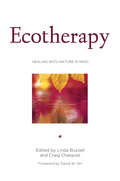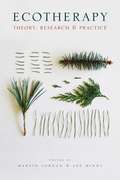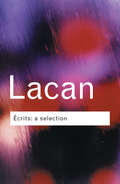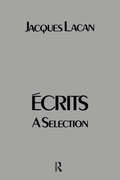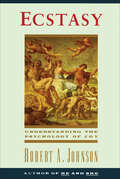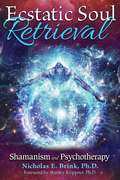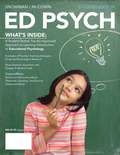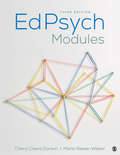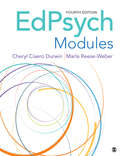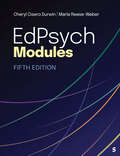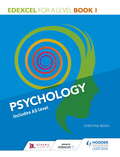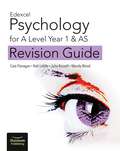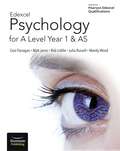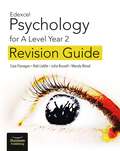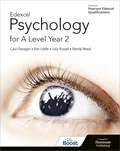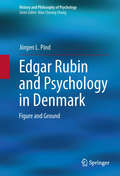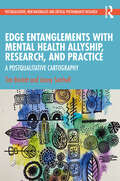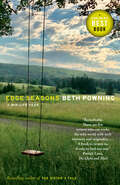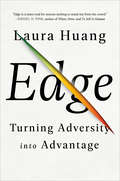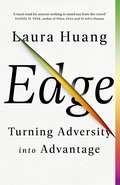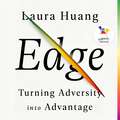- Table View
- List View
Ecotherapy: Healing with Nature in Mind
by Linda Buzzell Craig ChalquistIn the 14 years since Sierra Club Books published Theodore Roszak, Mary E. Gomes, and Allen D. Kanner's groundbreaking anthology, Ecopsychology: Restoring the Earth, Healing the Mind, the editors of this new volume have often been asked: Where can I find out more about the psyche-world connection? How can I do hands-on work in this area? Ecotherapy was compiled to answer these and other urgent questions.Ecotherapy, or applied ecopsychology, encompasses a broad range of nature-based methods of psychological healing, grounded in the crucial fact that people are inseparable from the rest of nature and nurtured by healthy interaction with the Earth. Leaders in the field, including Robert Greenway, and Mary Watkins, contribute essays that take into account the latest scientific understandings and the deepest indigenous wisdom. Other key thinkers, from Bill McKibben to Richard Louv to Joanna Macy, explore the links among ecotherapy, spiritual development, and restoring community.As mental-health professionals find themselves challenged to provide hard evidence that their practices actually work, and as costs for traditional modes of psychotherapy rise rapidly out of sight, this book offers practitioners and interested lay readers alike a spectrum of safe, effective alternative approaches backed by a growing body of research.
Ecotherapy: Theory, Research and Practice (First Edition)
by Joe Hinds Martin JordanThe idea of using nature to improve mental and emotional wellbeing has existed for many years, in many forms. However, growing levels of interest in holistic, reciprocal relationships with nature have led to the development of an explicit field, termed Ecotherapy. <P><P>In this book, Martin Jordan and Joe Hinds provide a comprehensive exploration of this emerging area of practice. <P><P>The book offers, in three parts, a unique examination of a range of theoretical perspectives, unpacks the latest research and provides a wealth of illuminating practice examples, with a number of chapters dedicated to authors' own first-hand experiences of the positive psychological effects of having contact with nature.
Ecrits: A Selection
by Jacques LacanGenius and charismatic leader of a psychoanalytic movement that in the 1950s and 1960s provided a focal point for the French intelligentsia, Jacques Lacan attracted a cult following. Ecrits is his most important work, bringing together twenty-seven articles and lectures originally published between 1936 and 1966. Following its first publication in 1966, the book gained Lacan international attention and exercised a powerful influence on contemporary intellectual life. To this day, Lacan's radical, brilliant and complex ideas continue to be highly influential in everything from film theory to art history and literary criticism. Ecrits is the essential source for anyone who seeks to understand this seminal thinker and his influence on contemporary thought and culture.
Ecrits: A Selection
by Jacques LacanGenius and charismatic leader of a psychoanalytic movement that in the 1950s and 1960s provided a focal point for the French intelligentsia, Jacques Lacan attracted a cult following. Ecrits is his most important work, bringing together twenty-seven articles and lectures originally published between 1936 and 1966. Following its first publication in 1966, the book gained Lacan international attention and exercised a powerful influence on contemporary intellectual life. To this day, Lacan's radical, brilliant and complex ideas continue to be highly influential in everything from film theory to art history and literary criticism. Ecrits is the essential source for anyone who seeks to understand this seminal thinker and his influence on contemporary thought and culture.
Ecstasy: Understanding the Psychology of Joy
by Robert A. JohnsonThe renowned Jungian psychologist and author of Transformation and Owning Your Own Shadow brings the hidden gift of ecstasy back into our lives.Robert A. Johnson has taken tens of thousands of readers on spiritual and psychological journeys towards inner transformation. In Ecstasy, he reconnects with the powerful and life-changing ecstatic element that lies dormant—but long-repressed—within us.Ecstasy was once considered a divine gift, Johnson tells us, one that could lift mortals out of ordinary reality and into higher world. But because Western culture has systematically repressed this ecstatic human impulse, we are unable to truly experience its transformative power.Johnson penetrates the surface of modern life to reveal the ancient dynamics of our humanity, pointing out practical means for achieving a healthy expression of our true inner selves. Through dreams, rituals, and celebrations, he shows us how to return to these original life-giving principles and restore inner harmony.
Ecstatic Soul Retrieval: Shamanism and Psychotherapy
by Stanley Krippner Nicholas E. BrinkA guide to integrating ecstatic trance, soul retrieval, and psychotherapy to overcome emotional challenges and deepen your connection to all life on Mother Earth• Describes the methodologies of ecstatic trance and psychotherapy, explaining how they can be integrated in a way that feels familiar and safe• Illustrates five ecstatic postures for strengthening identity, uncovering the root of suffering, and aligning with a spirit guide• Includes three in-depth case studies to illustrate how to override negative beliefs and habits and experience oneness with the Earth and all lifeSharing the wisdom of shamanic healing, Nicholas Brink creates an accessible link between psychotherapy and the ritualized use of ecstatic trance postures. He explains how ecstatic trance triggers the imagery that allows us to override negative beliefs and retrieve the lost innocence of the soul. He shows us how to broaden healing beyond the resolution of individual emotional and behavioral issues to create harmony in family, community, society, and the world around us.Integrating cognitive behavioral therapy, narrative therapy, and dream analysis, the author provides a unique model for tapping into the universal mind in a way that feels familiar and safe. He illustrates five ecstatic postures for emotional and spiritual growth, moving from finding a place of relaxation in which to strengthen your sense of self to the soul retrieval experience, which leads to the death of dysfunctional beliefs and restoration of your original innocence. The author shows how spirit guides can support us as we achieve the spiritual consciousness of the shaman and recognize the interdependence of all cultures and all living things on the planet.Using three in-depth case studies, Brink demonstrates how these practices can be used to resolve common psychological issues such as agoraphobia, panic attacks, irrational anger, mood swings, obsessive behaviors, and control issues. Allowing you to find your inner shaman--your ability to heal yourself and, in turn, to contribute to the healing of all life on our planet--ecstatic soul retrieval helps you overcome emotional and behavioral problems, override negative beliefs, and experience oneness with all life on Mother Earth.
Ed Psych
by Jack Snowman Rick MccownCreated through a "student-tested, faculty-approved" review process with over 200 students and faculty, ED PSYCH is an engaging and accessible solution to accommodate the diverse lifestyles of today's learners. ED PSYCH has the most applied approach to educational psychology--taking complex psychology theories and demonstrating how they apply to the everyday experiences of in-service teachers.
EdPsych Modules
by Cheryl Cisero Durwin Marla J. Reese-WeberNow with SAGE Publications, Cheryl Cisero Durwin and Marla Reese-Weber’s EdPsych Modules uses an innovative implementation of case studies and a modular format to address the challenge of effectively connecting theory and research to practice. Each module is a succinct, stand-alone topic that represents every subject found in traditional chapter texts and can be used in any order for maximum flexibility in organizing your course. Each of the book’s eight units of modules begins with a set of four case studies–early childhood, elementary, middle school, and secondary–and ends with “Assess” and “Reflect and Evaluate” questions and activities to encourage comprehension and application of the research and theories presented. The case approach and the extensive pedagogy that support it allows students to constantly see the applications of the theories and research that they are studying in the text.
EdPsych Modules
by Cheryl Cisero Durwin Marla J. Reese-WeberNow with SAGE Publications, Cheryl Cisero Durwin and Marla Reese-Weber’s EdPsych Modules uses an innovative implementation of case studies and a modular format to address the challenge of effectively connecting theory and research to practice. Each module is a succinct, stand-alone topic that represents every subject found in traditional chapter texts and can be used in any order for maximum flexibility in organizing your course. Each of the book’s eight units of modules begins with a set of four case studies–early childhood, elementary, middle school, and secondary–and ends with “Assess” and “Reflect and Evaluate” questions and activities to encourage comprehension and application of the research and theories presented. The case approach and the extensive pedagogy that support it allows students to constantly see the applications of the theories and research that they are studying in the text.
EdPsych Modules
by Cheryl Cisero Durwin Marla J. Reese-WeberEdPsych Modules uses an innovative modular approach and case studies based on real-life classroom situations to address the challenge of effectively connecting theory and research to practice. Succinct, stand-alone modules are organized into themed units and offer instructors the flexibility to tailor the book&’s contents to the needs of their course. The units begin with a set of case studies written for early childhood, elementary, middle, and secondary classrooms, providing readers with direct insight into the dynamics influencing the future students they plan to teach. All 25 modules highlight diversity, emphasizing how psychological factors adapt and change based on external influences such as sex, gender, race, language, disability status, and socioeconomic background. The Fourth Edition includes over three hundred new references across all 25 modules, and expanded coverage of diversity in new diversity-related research.
EdPsych Modules
by Cheryl Cisero Durwin Marla J. Reese-WeberEdPsych Modules uses an innovative modular approach and case studies based on real-life classroom situations to address the challenge of effectively connecting theory and research to practice. Succinct, stand-alone modules are organized into themed units and offer instructors the flexibility to tailor the book&’s contents to the needs of their course. The units begin with a set of case studies written for early childhood, elementary, middle, and secondary classrooms, providing readers with direct insight into the dynamics influencing the future students they plan to teach. All 25 modules highlight diversity, emphasizing how psychological factors adapt and change based on external influences such as sex, gender, race, language, disability status, and socioeconomic background. The Fourth Edition includes over three hundred new references across all 25 modules, and expanded coverage of diversity in new diversity-related research.
EdPsych Modules
by Cheryl Cisero Durwin Marla J. Reese-WeberEdPsych Modules by Cheryl Cisero Durwin and Marla Reese-Weber uses an innovative modular approach, integrating case studies drawn from real-life classroom situations to address the challenge of effectively connecting theory and research to practice. The text features succinct, stand-alone modules organized into themed units, offering the flexibility to tailor content to the specific needs of a course. Each unit opens with case studies written for early childhood, elementary, middle, and secondary classrooms, showing students the dynamics influencing the future students they plan to teach. All 25 modules highlight diversity, emphasizing how psychological factors adapt and change based on external influences such as sex, gender, race, language, disability status, and socioeconomic background. The Fifth Edition includes over seven hundred new references across all 25 modules, with thorough coverage of the latest developments in education, such as artificial intelligence, virtual reality, the latest neuroscience research, and updated coverage of disabilities.
EdPsych Modules
by Cheryl Cisero Durwin Marla J. Reese-WeberEdPsych Modules by Cheryl Cisero Durwin and Marla Reese-Weber uses an innovative modular approach, integrating case studies drawn from real-life classroom situations to address the challenge of effectively connecting theory and research to practice. The text features succinct, stand-alone modules organized into themed units, offering the flexibility to tailor content to the specific needs of a course. Each unit opens with case studies written for early childhood, elementary, middle, and secondary classrooms, showing students the dynamics influencing the future students they plan to teach. All 25 modules highlight diversity, emphasizing how psychological factors adapt and change based on external influences such as sex, gender, race, language, disability status, and socioeconomic background. The Fifth Edition includes over seven hundred new references across all 25 modules, with thorough coverage of the latest developments in education, such as artificial intelligence, virtual reality, the latest neuroscience research, and updated coverage of disabilities.
Edexcel Psychology for A Level Book 1
by Christine BrainExam Board: EdexcelLevel: AS/A-levelSubject: PsychologyFirst Teaching: September 2015First Exam: June 2016Endorsed for EdexcelDevelop your students' knowledge of the foundations of modern psychological understanding with this detailed textbook for Edexcel AS and A level Psychology, with targeted activities and clear explanations to build practical, mathematical and problem-solving skillsWritten by experienced author and examiner Christine Brain, this AS and year one A level textbook is fully mapped to the new Edexcel specification.- Helps students build their confidence in practical, mathematical and problem-solving skills through well-presented explanations and activities- Develops understanding and helps each student reach their potential with the essential information covered in a clear, logical format, supported by illustrations, questions and extension tasks- Supports you and your students through the new specification, with accessible coverage of all the key areas of Psychology for AS and year one of A level- Encourages your students to develop their interest in Psychology and its applications, with extension tasks and relevant content
Edexcel Psychology for A Level Book 1
by Christine BrainExam Board: EdexcelLevel: AS/A-levelSubject: PsychologyFirst Teaching: September 2015First Exam: June 2016Endorsed for EdexcelDevelop your students' knowledge of the foundations of modern psychological understanding with this detailed textbook for Edexcel AS and A level Psychology, with targeted activities and clear explanations to build practical, mathematical and problem-solving skillsWritten by experienced author and examiner Christine Brain, this AS and year one A level textbook is fully mapped to the new Edexcel specification.- Helps students build their confidence in practical, mathematical and problem-solving skills through well-presented explanations and activities- Develops understanding and helps each student reach their potential with the essential information covered in a clear, logical format, supported by illustrations, questions and extension tasks- Supports you and your students through the new specification, with accessible coverage of all the key areas of Psychology for AS and year one of A level- Encourages your students to develop their interest in Psychology and its applications, with extension tasks and relevant content
Edexcel Psychology for A Level Year 1 & AS: Revision Guide
by Cara Flanagan Julia Russell Rob Liddle Mandy WoodThe portable-sized Revision Guide is ideal for consolidating knowledge both at home for revision, and at school as a lesson-by-lesson summary as the course progresses. / Each topic is covered on one spread helping students get straight to the point. / Description (AO1) is on the left of the spread split into separate segments to aid revision. / Evaluation (AO3) is on the right, each point illustrating the all-important chains of reasoning. / Exam-style questions, including AO2 application questions on concepts and methods, are on every spread providing lots of practice. / Detailed exam advice section is included, with hints and tips offered throughout the book. / Lots of illustrations and the odd corny joke help make it very user-friendly!
Edexcel Psychology for A Level Year 1 and AS: Student Book
by Cara Flanagan Julia Russell Matt Jarvis Rob Liddle Mandy WoodWritten by leading psychology authors, Cara Flanagan, Matt Jarvis, Rob Liddle, Julia Russell and Mandy Wood, this book's engaging visual style and tone will support you through every step of your Year 1 or AS course and help you thoroughly prepare for assessment. // Endorsed by Edexcel offering high quality support you can trust. // Designed to motivate students of all ability levels with a stunning visual style to help you engage with the information. // Each topic is presented on one spread to help you instantly see the whole picture, with description and evaluation clearly separated. // `Apply it' activities provide plentiful opportunities to help you develop and practise your application and research methods skills. // Numerous links are made between topic content and 'Individual Differences' and 'Developmental Psychology'. // Evaluation points relating to 'Issues and Debates' are integrated into every topic spread. // A chapter is dedicated to research methods and practical activities are included in each chapter to prepare you for research methods questions and practical investigations. // Visual summaries help ensure you have a good grasp of the basics. // Lots of exam support throughout to help you understand the assessment objectives and mark schemes, and guide you on the skills you need for exam success.
Edexcel Psychology for A Level Year 2: Revision Guide
by Cara Flanagan Julia Russell Rob Liddle Mandy WoodThe portable-sized Revision Guide is ideal for consolidating knowledge both at home for revision, and at school as a lesson-by-lesson summary as the course progresses. / Each topic is covered on one spread helping students get straight to the point. / Description (AO1) is on the left of the spread split into separate segments to aid revision. / Evaluation (AO3) is on the right, each point illustrating the all-important chains of reasoning. / Exam-style questions, including AO2 application questions on concepts and methods, are on every spread providing lots of practice. / Detailed exam advice section is included, with hints and tips offered throughout the book. / Lots of illustrations and the odd corny joke help make it very user-friendly!
Edexcel Psychology for A Level Year 2: Student Book
by Cara Flanagan Julia Russell Matt Jarvis Rob Liddle Mandy WoodWritten by leading psychology authors, Cara Flanagan, Matt Jarvis, Rob Liddle, Julia Russell and Mandy Wood, this book's engaging visual style and tone will support you through every step of your A Level Year 2 course and help you thoroughly prepare for assessment. // Endorsed by Edexcel offering high quality support you can trust. // Designed to motivate students of all ability levels with a stunning visual style to help you engage with the information. // Each topic is presented on one spread to help you instantly see the whole picture, with description and evaluation clearly separated. // `Apply it' activities provide plentiful opportunities to help you develop and practise your application and research methods skills. // Numerous links are made between topic content and 'Individual Differences' and 'Developmental Psychology'. // Evaluation points relating to 'Issues and Debates' are integrated into every topic spread. // A chapter is dedicated to research methods and practical activities are included in each chapter to prepare you for research methods questions and practical investigations. // Visual summaries help ensure you have a good grasp of the basics. // Lots of exam support throughout to help you understand the assessment objectives and mark schemes, and guide you on the skills you need for exam success.
Edgar Rubin and Psychology in Denmark: Figure and Ground
by Jörgen L. PindEdgar Rubin was one of the outstanding pioneers of perceptual psychology in the early twentieth century. His approach involved a turning away from an earlier elementaristic psychology towards an approach based on "perceptual wholes." Rubin's approach is closely linked to the Gestalt revolution in perceptual psychology and was eagerly embraced by the Gestaltists. This has often led to Rubin being classified as a Gestalt psychologist. This misrepresents his position as is shown in the book. Rubin's aim was to develop a descriptive psychology -- or aspective psychology to use his terminology -- which would do full justice to the complex nature of psychological phenomena. Thus he rejected attempts by the Gestalt psychologists to explain diverse phenomena within a single overarching framework. While Rubin is internationally often misclassified as a Gestalt psychologist, in Denmark he is often hailed as a pioneer of a specific Danish "school of phenomenology." This also misrepresents Rubin's approach who was highly critical of psychological "schools." His criticisms of the overambitious theoretical aspirations of Gestalt psychology, his negative attitude towards school formation in psychology were both highly prescient. What remains today of Gestalt psychology is primarily its descriptive parts; the idea of schools of psychology, so common in early twentieth century psychology is now seen as a totally outmoded viewpoint. There is an interesting moral in this story for the history and status of psychology; to wit, that Rubin's emphasis on the correct description of psychological phenomena shows what is likely to live on as classic contributions to psychology. This certainly holds for his own work on figure and ground which, after almost a century, is still universally known and admired by psychologists. He was indeed a consummate psychological observer. The book argues for the importance of description in psychology.
Edge Entanglements with Mental Health Allyship, Research, and Practice: A Postqualitative Cartography (Postqualitative, New Materialist and Critical Posthumanist Research)
by Tim Barlott Jenny SetchellEdge Entanglements traverses the borderlands of the community "mental health" sector by "plugging in" to concepts offered by Gilles Deleuze and Felix Guattari along with work from Mad Studies, postcolonial, and feminist scholars. Barlott and Setchell demonstrate what postqualitative inquiry can do, surfacing the transformative potential of freely-given relationships between psychiatrised people and allies in the community. Thinking with theory, the authors map the composition and generative processes of freely-given, ally relationships. Edge Entanglements surfaces how such relationships can unsettle constraints of the mental health sector and produce creative possibilities for psychiatrised people. Affectionately creating harmonies between theory and empirical "data," the authors sketch ally relationships in ways that move. Allyship is enacted through micropolitical processes of becoming-complicit: ongoing movement towards taking on the struggle of another as your own. Barlott and Setchell’s work offers both conceptual and practical insights into postqualitative experimentation, relationship-oriented mental health practice, and citizen activism that unsettles disciplinary boundaries. Ongoing, disruptive movements on the margins of the mental health sector – such as freely-given relationships – offer opportunities to be otherwise. Edge Entanglements is for people whose lives and practices are precariously interconnected with the mental health sector and are interested in doing things differently. This book is likely to be useful for novice and established (applied) new material and/or posthumanist scholars interested in postqualitative, theory-driven research; health practitioners seeking alternative or radical approaches to their work; and people interested in citizen advocacy, activism, and community organising in/out of the mental health sector.
Edge Seasons: A Mid-life Year
by Beth PowningFrom the bestselling, critically acclaimed author of The Hatbox Letters and Shadow Child comes the story of a year of transformation. In the middle years of her life, Beth Powning stands on a threshold: an &“edge season.&” Late one August, when Beth and her partner, Peter, observe the deserted sauna bath on their farm near Sussex, New Brunswick, she remembers the faith and energy that went into building it. As they begin to repair the sauna, the project becomes a metaphor for how dreams, relationships and commitments need to be continuously renewed. While their only child, Jake, prepares to leave for university, Beth and Peter contemplate changes of their own. As fall and winter gradually shut down the vibrant life of the gardens, fields and forests near her home, Beth witnesses the beauty and regenerative force of the natural world, weaving acutely observed descriptions of the countryside with the story of her own intimate transformation. Edge Seasons is an intensely absorbing journey that illuminates how change can shatter even as it strengthens.
Edge: Turning Adversity into Advantage
by Laura HuangLaura Huang, a preeminent Harvard Business School professor, shows that success is about gaining an edge: that elusive quality that gives you an upper hand and attracts attention and support. Some people seem to naturally have it. Now, Huang teaches the rest of us how to create our own from the challenges and biases we think hold us back, and turning them to work in our favor.How do you find a competitive edge when the obstacles feel insurmountable? How do you get people to take you seriously when they're predisposed not to, and perhaps have already written you off?Laura Huang has come up against that problem many times--and so has anyone who's ever felt out of place or underestimated. Many of us sit back quietly, hoping that our hard work and effort will speak for itself. Or we try to force ourselves into the mold of who we think is "successful," stifling the creativity and charm that makes us unique and memorable. In Edge, Huang offers a different approach. She argues that success is rarely just about the quality of our ideas, credentials, and skills, or our effort. Instead, achieving success hinges on how well we shape others' perceptions--of our strengths, certainly, but also our flaws. It's about creating our own edge by confronting the factors that seem like shortcomings and turning them into assets that make others take notice.Huang draws from her award-winning research on entrepreneurial intuition, persuasion, and implicit decision-making, to impart her profound findings and share stories of previously-overlooked Olympians, assistants-turned-executives, and flailing companies that made momentous turnarounds. Through her deeply-researched framework, Huang shows how we can turn weaknesses into strengths and create an edge in any situation. She explains how an entrepreneur scored a massive investment despite initially being disparaged for his foreign accent, and how a first-time political candidate overcame voters' doubts about his physical disabilities.Edge shows that success is about knowing who you are and using that knowledge unapologetically and strategically. This book will teach you how to find your unique edge and keep it sharp.
Edge: Turning Adversity into Advantage
by Laura HuangSHORTLISTED FOR THE BUSINESS BOOK AWARDS 2021How do you find a competitive edge when you feel like the world is against you? How do you get people to take you seriously when they're predisposed not to?Star Harvard Business School professor Laura Huang has come up against that problem many times - and so has anyone who's ever felt out of place or underrecognised. Many of us sit back quietly, hoping that our hard work and grit will speak for themselves. Or we force ourselves to fit the mold of what we perceive as 'successful', stifling the creativity and charm that makes us memorable.In this perfect guide for ambitious readers of Amy Cuddy's Presence and Angela Duckworth's Grit looking for the missing piece that will take them to the next level, Huang offers a different approach.She argues that success is rarely about the quality of your ideas, your credentials and skills or the effort you put in. Instead, it's about how well you shape others' perceptions - about your strengths, yes, but also about your flaws. It's about creating an edge by confronting the factors that seem like shortcomings and turning them into assets that persuade others to take notice.Drawing from her research on gut feeling, pitching and investment decisions, as well as stories about previously overlooked Olympians, assistants-turned executives and first-time entrepreneurs, Huang shows that success comes from knowing who you are and using that knowledge unapologetically and strategically. This book will teach you how to find your unique edge and keep it sharp.
Edge: Turning Adversity into Advantage
by Laura HuangThere's power in owning the obstacles you might face. This book shows you how to unlock it.In an ideal world, we'd succeed based on our actual skills and performance. But in the real world, subtle perceptions and stereotypes - about appearance, race, gender, experience and more - colour others' perceptions. The result might be that your hard work isn't noticed or appreciated, your effort doesn't lead to proportional rewards and your good ideas aren't taken seriously.But it doesn't have to be that way. As Harvard Business School Professor Laura Huang has discovered, there's a way to flip stereotypes and obstacles in your favour. Drawing on compelling case studies and her groundbreaking research on overcoming bias, Huang explains that by finding your edge, you can turn perceived disadvantages into real strengths - and into real success.Creating an edge is the key to succeeding within an imperfect system.Edge will help you make your hard work work harder for you. It will help you be seen - and empower you to take the spotlight with authenticity, charm and poise.
